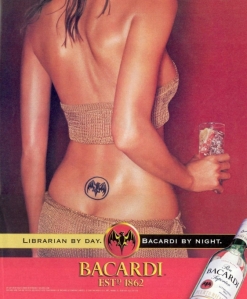As it stumbles through its awkward adolescence, outgrows old clothes, and starts to think for itself instead of just bowing to the powers that be, our precocious little evolving music industry is beginning to resemble the unencumbered and creative entity that it might one day become.
2008 saw all sorts of interesting trends in music production, distribution, and consumption. Major labels and middlemen were forced to reevaluate their roles, artists and fans continued to empower one another and interact in totally new ways, and people (music bloggers perhaps among the noisiest of the bunch) analyzed the musical space ad nauseum debating issues like DRM and copyright, free downloads and choose-your-price models, social media and social music…
All of this begs the question: What will 2009 bring? Pundits near and far are surely throwing out predictions left and right (let’s face it, we probably will too), but no one really knows what could happen this year.

One interesting development, which could potentially be an early indicator of a new direction is Groove Armada‘s new viral music sharing model. The English duo, made up of Andy Cato and Tom Findlay, has now come up with a legal way of sharing music that rewards the fans for doing so, thereby recruiting those fans into somewhat of a virtual street team. Empower the fans and they will become your evangelists. Amen to that.
“When you give away music for free it’s disposable. When you share it, it’s done with love,” says Cato.
Using Bacardi B-Live Share (they sure do love their Bacardi), they offer the first track off their new EP for free, which users then pass along to friends, thus enabling the original user to access the next track. NME states that this system is being called PAP4 (pass-along-paid-for)… questionable nomenclature to be sure. Yet, the concept seems solid. Essentially, the more you share their music, the more of it you get for free.
It will be interesting to see if this gets as viral as it has the potential to do, or if it will be just another good idea that got no traction. One stumbling block could be that although the concept seems as simple as 1) download free song 2) share song with friends 3) get more free songs, it’s actually a little more complicated once you look closely. Click here for more details. You know, things like a) you have to be (or claim to be) of legal drinking age b) you have to have shared track one with 20 people before you get track two, then 200 for track three, and 2,000 for track four… keeping in mind that the second two generations compound so you get credit for your friend that your friend shared the song with. See where this gets complicated? In any case, it’s probably best to just try it. If nothing else at least go get the first song and the facebook app.
Apparently this model has been in the works for a bit. Sadly, none of us were chosen to fly to Ibiza for a day to write about it while it was still in top secret mode…
So let’s see. We’ve got artists ditching the majors and going it alone, with only the internet as their guide. Then we’ve got artists flocking to independent labels looking for that warm and fuzzy we-actually-care-about-you-and-won’t-screw-you-over vibe. And of course, we’ve got artists with smart managers, PR people, or maybe just creative college interns coming up with all sorts of wacky – and sometimes highly effective – pricing models, distribution models and the like.
We’ll see if Groove Armada’s new model works out for them and if so, if others copy it. Until then, however, we can rest easy knowing that the world’s favorite rum has still got their back.


 Controlled Substance Sound Labs was formed by brothers Jon and Matt Phillips as an artistic pipeline for the family of artists under Silverback Management. As a firm that has represented the vision and career direction on the management side, they have created a refreshing record label and distribution scenario that caters to the new “independent” minded landscape of the music business, and its changing climate. They have created a trustworthy scenario to release albums and own their own masters and copyrights, which as we all know, is not a practice commonly held by the major label behemoths currently in a steep decline both creatively and from a business standpoint.
Controlled Substance Sound Labs was formed by brothers Jon and Matt Phillips as an artistic pipeline for the family of artists under Silverback Management. As a firm that has represented the vision and career direction on the management side, they have created a refreshing record label and distribution scenario that caters to the new “independent” minded landscape of the music business, and its changing climate. They have created a trustworthy scenario to release albums and own their own masters and copyrights, which as we all know, is not a practice commonly held by the major label behemoths currently in a steep decline both creatively and from a business standpoint.




